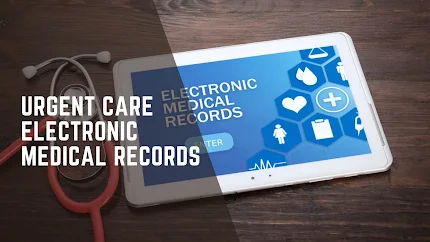Streamlining Patient Care: The Importance of Urgent Care Electronic Medical Records
Introduction:
In the fast-paced world of urgent care facilities, efficiency and accuracy in managing patient information are paramount. The adoption of electronic medical records (EMRs) has revolutionized the way healthcare providers deliver timely and effective services. This article explores the significance of urgent care electronic medical records, highlighting the key benefits and features that contribute to streamlined patient care.
1. Enhanced Efficiency:
Urgent care centers thrive on speed and precision. Electronic medical records eliminate the cumbersome paperwork traditionally associated with patient documentation. Streamlining the process of recording and accessing patient information allows healthcare professionals to focus on what matters most – providing immediate and quality care.
2. Quick Access to Critical Information:
In urgent care scenarios, every second counts. Electronic medical records enable healthcare providers to swiftly access a patient's medical history, allergies, and medications. This instant access to critical information facilitates informed decision-making, leading to quicker diagnoses and more effective treatment plans.
3. Improved Coordination Amongst Healthcare Teams:
Urgent care settings often involve a multidisciplinary approach to patient care. EMRs facilitate seamless communication and collaboration among different healthcare professionals. From physicians to nurses and administrative staff, everyone can access real-time updates, ensuring a coordinated effort in delivering prompt and comprehensive care.
4. Enhanced Patient Experience:
Urgent care electronic medical records contribute to an overall improved patient experience. Reduced waiting times, accurate diagnosis, and efficient treatment plans lead to higher patient satisfaction. Additionally, the ability to book appointments online and complete pre-registration forms electronically adds to the convenience for patients seeking urgent care services.
5. Compliance with Regulatory Standards:
Ensuring compliance with healthcare regulations is a top priority for urgent care facilities. Electronic medical records systems are designed to meet and exceed industry standards for data security and privacy. This not only safeguards patient information but also ensures that the urgent care center remains in compliance with legal and regulatory requirements.
6. Enhanced Billing and Revenue Cycle Management:
Efficient billing and revenue cycle management are vital for the financial health of any healthcare facility. Urgent care electronic medical records streamline the billing process, reducing errors and minimizing delays in reimbursement. This, in turn, improves the overall financial efficiency of the urgent care center.
Conclusion:
In the fast-paced world of urgent care, electronic medical records are indispensable tools that contribute to efficient, accurate, and patient-centric healthcare delivery. The adoption of such systems not only streamlines administrative processes but also enhances the overall quality of care provided in urgent care settings. As the healthcare landscape continues to evolve, embracing technology like urgent care electronic medical records becomes not just a choice, but a necessity for those committed to delivering prompt and effective healthcare services.

